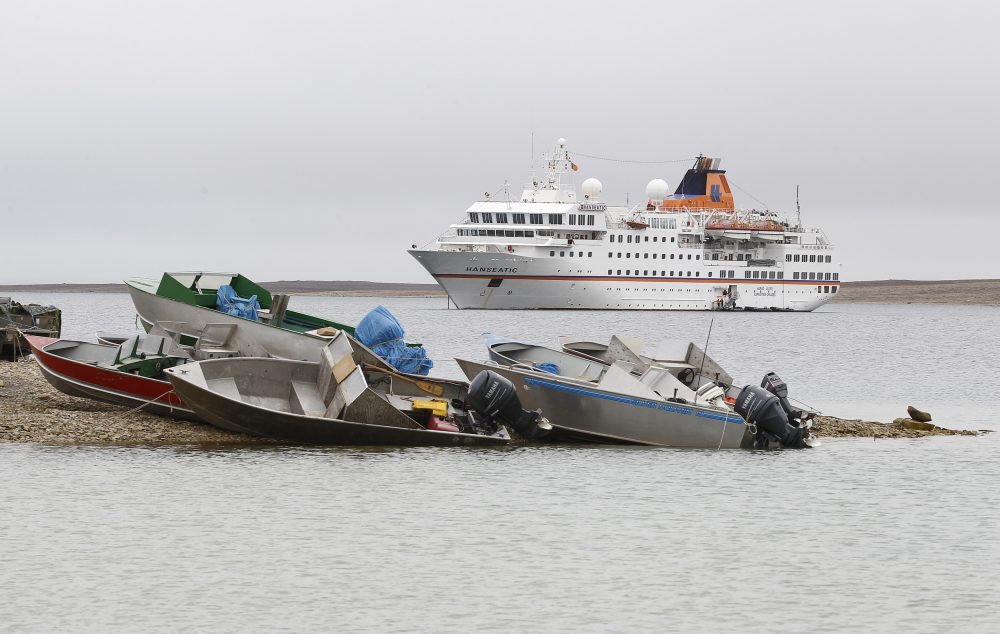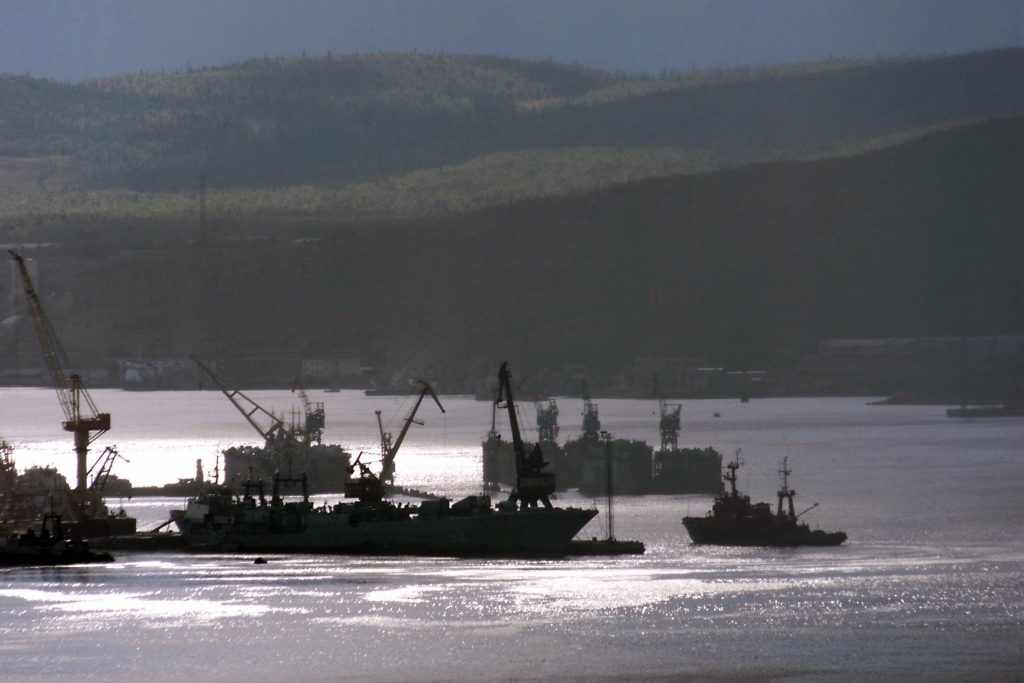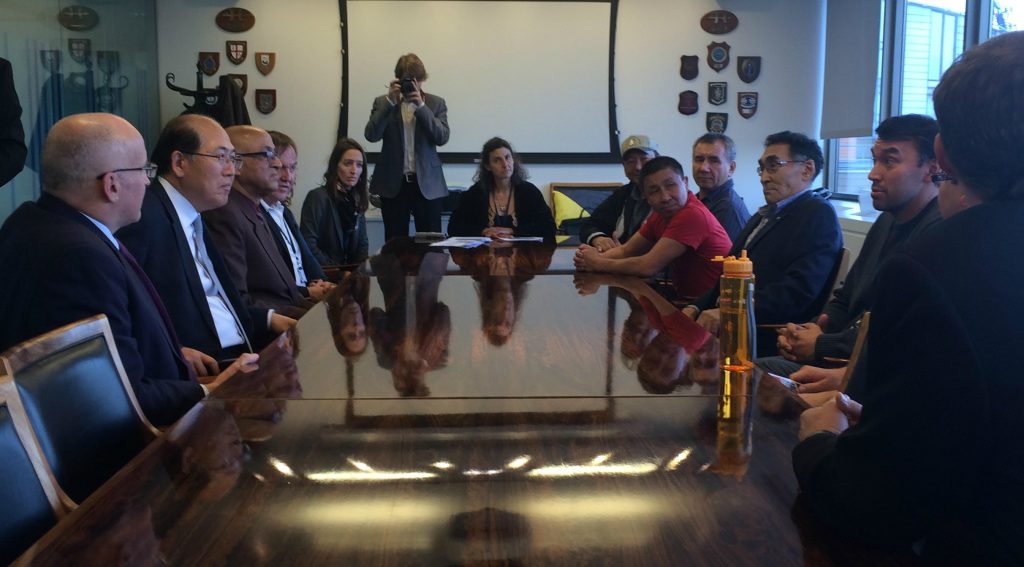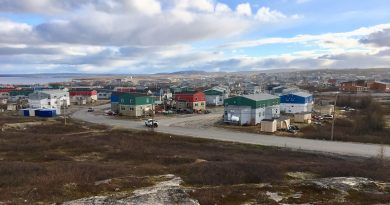World maritime body presents Polar Code to Arctic Council meeting in Alaska

High level representatives of the eight circumpolar countries and Arctic Indigenous organizations that make up the Arctic Council received an exclusive briefing on the new Polar Code during their meeting in Juneau, Alaska, by none other than the head of the International Maritime Organization.
IMO Secretary General Kitack Lim said he travelled to the Arctic Council Meeting of Senior Arctic Officials (SAO) specifically to present the UN organization’s work on the implementation of the Polar Code, which regulates shipping in Arctic waters and entered into force on Jan. 1, 2017.
It was the first time that an IMO secretary general had participated at an Arctic Council SAO meeting, Lim said.
The response of the Arctic Council participants was even more enthusiastic than he expected, Lim told Eye on the Arctic.
“My presentation was very much welcomed by the delegates and participants,” Lim said. “I sensed one important issue that several [participants] raised – the better communication between Arctic Council and the IMO.”

Participants of the Arctic Council meeting discussed other key topics such as scientific cooperation, renewable energy, protected areas, shipping, prevention of oils spills and marine biodiversity.
Speaking on the phone from Juneau, Lim also answered some of the criticism levelled at the maritime code that introduces international safety and environmental standards for vessels operating in Arctic waters.
Some critics argue that the scope of the application of the Polar Code should be expanded to cover the entire Arctic Circle. As it stands now the code does not cover some of the busiest maritime routes and facilities in northwestern Europe, such as the Russian Arctic port of Murmansk as well as some of the northern Norwegian ports.
Lim said the subject of the scope of the Polar Code’s application was discussed extensively by member states and there are no plans to expand the scope for now.
“Based on some scientific research work, data and policy by member states the application scope of the Polar Code was decided as it is,” Lim said.
A coalition of environmental and Indigenous groups also discussed two other major issues with the secretary general, said Sue Libenson, senior Arctic program officer at Pacific Environment, a U.S.-based environmental NGO.
“The one is the lack of Indigenous representation at the IMO, which is not specific to the Polar Code but with so many different rules being developed for the Arctic, we think it’s important that Arctic Indigenous communities have a stronger voice,” said Libenson.

In October of last year, six Arctic Indigenous leaders from Alaska, Canada, and Russia, accompanied by representatives of Pacific Environment, had their first meeting with Lim and participated in the shipping regulator’s Marine Environment Protection Committee plenary sessions.
Lim said he had a follow-up meeting with Arctic Indigenous leaders in Juneau.
“Since IMO is making new regulations or amendments to current regulations, which should be adopted by member states, I believe there should be more consideration of concerns by Indigenous groups,” Lim said.
He will convey the concerns expressed to him by the Indigenous leaders to the IMO, Lim said.
In the meantime, he suggested the Indigenous leaders work through the Arctic Council, where they have permanent representation, to raise issues of concern related to Arctic shipping with the IMO, Lim said.
On his part Lim pledged to improve the cooperation and coordination between the IMO and the Arctic Council.
The second issue raised by the Pacific Environment was regulating Heavy Fuel Oil (HFO), also known as bunker oil, in the Arctic, Libenson said.
A coalition of environmental groups supported by the European Union and other countries wants the IMO to ban the use of HFO in Arctic shipping similar to the ban it instituted in the Antarctic waters, recognizing the potentially catastrophic impact of a heavy fuel oil spill on the fragile ecosystems there.
Lim acknowledged the importance of the HFO file, which had been the subject of intense discussions at the IMO over the last couple of years. The issue will be discussed again at the IMO Marine Environment Protection Committee’s plenary session in July, Lim said.
“We will consider that matter further on until we have some good consensus and good compromise on that issue,” Lim said.
In the meantime, last October the Marine Environment Protection Committee adopted limits on the sulphur content in the fuel oils, he said. The IMO’s decision, which enters into force in 2020, set the new requirements, which will see sulphur emissions fall from the current maximum of 3.5 percent of fuel content to 0.5 per cent, Lim said.
“It will contribute to eliminating the negative effect of heavy fuel oil even in the Arctic waters,” Lim said.
Environmental groups, however, say that while the use of fuels with lower sulphur content would reduce the amount of black soot produced by the shipping, until there is a complete ban on heavy fuel oils in the Arctic, the risk of a potentially catastrophic oil spill remains.
The meeting in Juneau also set the stage for the upcoming Ministerial meeting in Fairbanks, Alaska in May. There the two-year chairmanship of the Arctic Council will pass from the United States to Finland.
Related stories from around the North:
Canada: UN maritime body listens to Arctic Indigenous voices, Eye on the Arctic
Canada: UN maritime body sets rules to cut sulfur emissions by ships, Eye on the Arctic
Canada: Ban use of heavy fuel oil in the Arctic by ships: environmental groups, Eye on the Arctic
Canada: Report urges creation of new governance structure for oversight of Arctic shipping, Radio Canada International
China: Chinese company mulls more Arctic shipping, Barents Observer
Iceland: Calls for action at Arctic shipping conference, Alaska Dispatch News
Russia: Arctic cruise industry expands, Cryopolitics Blog
Sweden: Swedish icebreakers gear up for Arctic role, Radio Sweden
United States: Arctic no shipping rival to Suez: expert, Alaska Public Radio Network



